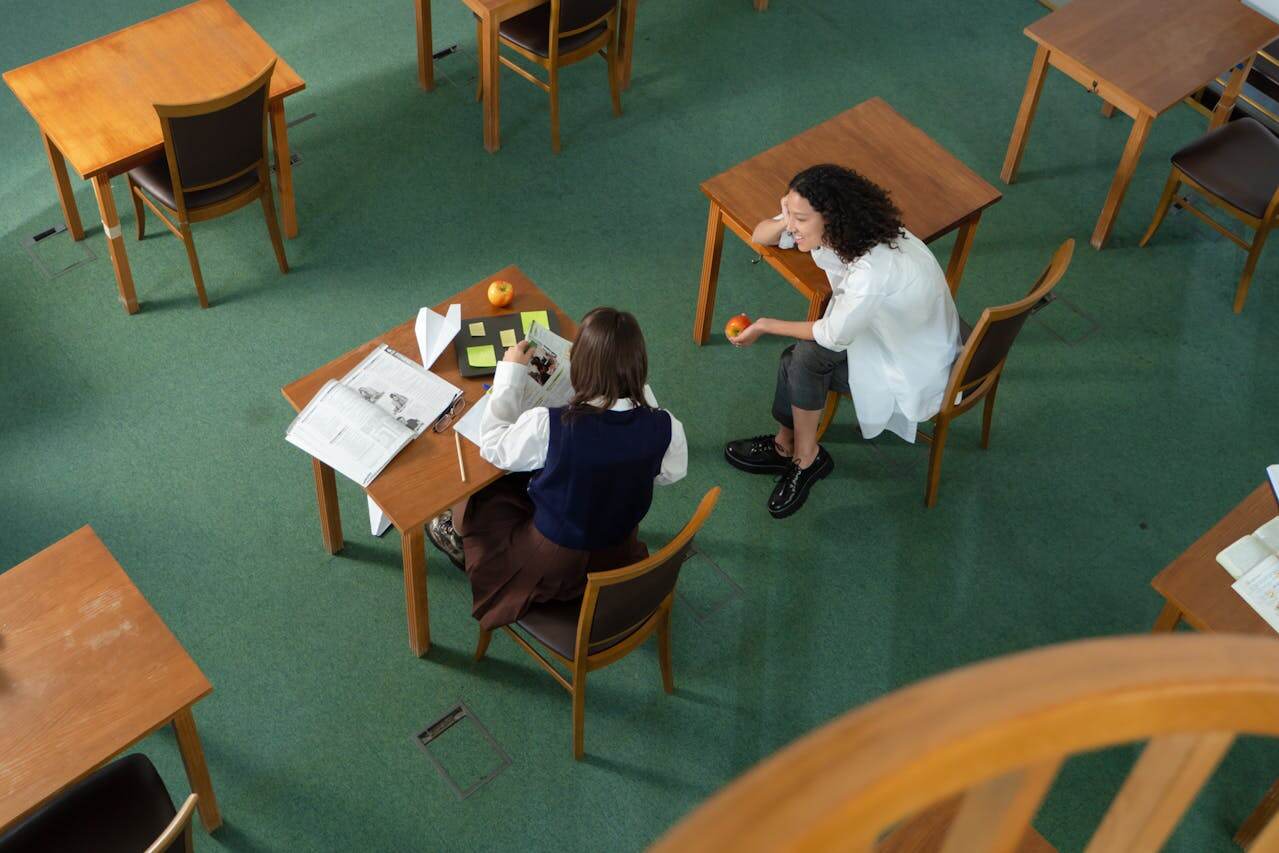As an experienced IB educator, I’ve seen firsthand how the Theory of Knowledge challenges students and significantly enhances their analytical thinking skills. A vital component of this course is the TOK journal. This personal diary is where you, as students, will chronicle your reflections on what you learn. Essentially, this journal is a scaffold for your evolving understanding of knowledge.
What Is the Purpose of the TOK Journal Assignment?
The TOK journal serves several fundamental purposes in the curriculum. Understanding these purposes can greatly enhance a student’s approach to and appreciation of the assignment. From my experience, the TOK journal assignment is created to:
- Encourage continuous reflection. It prompts students to continuously engage with and reflect upon the TOK themes and concepts discussed in class. This ongoing reflection is crucial for deepening understanding.
- Develop critical thinking skills. Students learn to examine knowledge claims and research their implications critically.
- Foster personal engagement. The journal is a personal space where students can connect the abstract ideas of TOK to their own lives and experiences. This personalization makes the learning process more relevant and effective.
- Improve writing skills. Regular entries help students improve their writing skills, especially in constructing coherent arguments and expressing complex ideas clearly and effectively.
- Prepare for TOK assessment. The journal serves as a preparation tool for the TOK essay and presentation, allowing students to research ideas that can be developed in these assessments.
According to general IB criteria, the TOK journal isn’t just a record of thoughts but a reflective tool that encourages continuous intellectual growth. In my view, its purpose extends beyond merely fulfilling a course requirement; it is about cultivating an insightful, questioning attitude toward knowledge and learning.
From my experience, the most successful students are those who genuinely engage with their journal, viewing it as a companion in their TOK path rather than just an assignment to complete. They use their entries to critically assess their beliefs and values, to question the basis of knowledge claims they encounter, and to document their evolving understanding of TOK concepts.
So, the TOK journal assignment is fundamental in developing thoughtful, informed, and critical thinkers — essential qualities in today’s complex and rapidly changing environment.
11 TOK Journals Ideas to Consider
Allow me to share various TOK journal ideas that I have found effective and stimulating for students. These journal assignments encourage students to connect abstract TOK concepts with practical examples and personal experiences, deepening their understanding of how we know what we claim to know.
By the way, you can also buy a TOK essay through our website. Our IB writers will craft a custom paper tailored to your requirements. We guarantee that each paper is original and free from plagiarism and AI-generated content, ensuring you can submit your essay confidently, even under tight deadlines.
1. Ethics and Technology
In my opinion, reflecting on recent technological advancements offers an invaluable opportunity to research ethical implications. Take, for example, the development of artificial intelligence. This technology could potentially lead to dilemmas, such as privacy, consent, and the ethical treatment of AI entities. How might these advancements challenge our existing ethical frameworks?
From my experience, journal entries with these questions help students critically analyze how technology shapes and challenges our moral boundaries, encouraging a re-evaluation of what we consider ethical.
2. Art and Interpretation
Choosing and analyzing a piece of art in terms of its knowledge claims has always been fascinating. From my experience, each artwork, whether a painting, a song, or a film, serves as a conduit for investigating the nature of reality or truth. What does the work suggest about these concepts? How does the context of the work influence its interpretation?
For instance, consider a classic film like “Citizen Kane”; it offers rich insights into the nature of power and truth. According to general IB criteria, such an analysis enhances a student’s understanding of knowledge claims and deepens their appreciation of how context shapes our interpretation of art.

3. Historical Knowledge
As I know from years of engaging with IB students, examining a historical event interpreted differently across various cultures or academic circles can be particularly enlightening. Consider the different global narratives surrounding the Cold War. What factors contribute to these differing perspectives?
Cultural biases, national interests, and even academic disciplines play significant roles in shaping these interpretations. This influences our understanding of truth and history and teaches students to recognize the subjective nature of historical knowledge and the importance of examining multiple perspectives.
4. Natural Sciences and Knowledge
From my experience, investigating how a scientific theory that was once widely accepted but later disproven or revised offers profound insights into the nature of scientific knowledge and its development over time.
For instance, consider the transition from Newtonian physics to Einstein’s theory of relativity. This shift not only revolutionized our understanding of gravity but also illustrated scientific knowledge’s dynamic and revisable nature. In my opinion, such cases exemplify how scientific knowledge is not static but evolves through continuous questioning and testing, aligning with general IB criteria that encourage an inquiry-based approach to learning.
5. Human Sciences and Bias
Reflecting on experiments in psychology or economics where bias might affect the results is crucial for understanding the complexity of human sciences. From my experience, consider the famous confirmation bias prevalent in many social psychology studies. Bias can significantly influence research outcomes by shaping the hypothesis and affecting data interpretation.
Discussing how such biases can be mitigated, for example, through blind testing or other rigorous methodologies, helps students understand the importance of objectivity in research. According to general IB criteria, recognizing and addressing bias strengthens a student’s ability to assess research methodologies and their implications for knowledge critically.
6. Language and Knowledge
I know through my work with the TOK curse that language profoundly shapes our understanding of the world. Researching how language can limit or enhance our ability to know is a fascinating path. For instance, the concept of “Schadenfreude” in German or “Saudade” in Portuguese points to emotions for which English has no single-word equivalents. It raises intriguing questions: can we fully grasp concepts for which we have no direct words?
From my experience, discussing how language influences our cognitive and perceptual capabilities offers students valuable insights into the relationship between language, thought, and knowledge. According to general IB criteria, this investigation fosters an appreciation of ways human knowledge is constructed and communicated across different cultures.
7. Mathematics and Reality
In my extensive experience with the IB curriculum, the debate over whether mathematical knowledge is created remains among the most intellectually stimulating discussions. From my perspective, this debate highlights the unique nature of mathematics as a field of knowledge. For instance, consider the concept of infinity — a notion that transcends physical reality and challenges our understanding of the finite world.
Similarly, initially conceptualized as mathematical abstractions, imaginary numbers now play critical roles in fields like electrical engineering and quantum physics. According to general IB criteria, researching such examples encourages students to question the foundations of knowledge and the processes through which it is developed.
8. Ethics in Everyday Decisions
Reflecting on personal experiences, I recall a situation in my professional life where I faced a significant ethical decision regarding the confidentiality of student information. Several factors, including legal obligations, the well-being of the student, and professional ethics, influenced the decision to disclose information to concerned parties or maintain strict confidentiality. From my experience, this scenario exemplified the complexities of ethical decision-making in real-world contexts.
Analyzing this decision, I considered various knowledge claims related to ethical principles and professional responsibilities. It was a profound learning experience that underscored the importance of ethical integrity in education. According to general IB criteria, discussing such personal experiences helps students understand the practical implications of ethical theories and enhances their ability to apply these concepts in everyday life.
9. Religious Knowledge Systems
In my extensive experience, discussing how knowledge is constructed within religious systems provides a fascinating glimpse into the interaction between faith and reason. I’ve observed that faith and reason often coexist, each playing a crucial role in shaping religious knowledge. For instance, theological doctrines are typically underpinned by both scriptural authority and rational interpretation.
In this context, conflicts may arise when religious claims about the universe contradict scientific explanations. Yet, there are also harmonies, such as the ethical congruencies in religious teachings and secular moral philosophy. According to general IB criteria, investigating these dynamics helps students appreciate the complex ways different forms of knowledge interact and influence each other.

Need Help with Your TOK Journal Assignment?
From research and analysis to structuring and editing, our skilled mentors will be by your side, helping you write exceptional work that meets the word count and stringent IB criteria.
10. Indigenous Knowledge Systems
As I know from my work with students, comparing an indigenous knowledge system with a scientific approach to understanding natural phenomena can reveal profound insights. Indigenous knowledge, often passed down through generations and closely tied to nature, offers a holistic approach to understanding the natural world, focusing on balance and sustainability. In contrast, the scientific method emphasizes empirical evidence and reproducibility.
While scientific approaches provide technological advances and precise control over natural elements, indigenous knowledge offers invaluable perspectives on ecological balance and conservation. From my experience, this comparison not only highlights the strengths and limitations of each system but also encourages students to value diverse Ways of Knowing, as recommended by general IB criteria.
11. Knowledge and Doubt
Reflecting on my own experiences, I recall when doubt about the effectiveness of traditional teaching methods led me to research and eventually adopt more interactive, student-centered approaches. This skepticism pushed me to seek out and apply new strategies that significantly enhanced my teaching effectiveness and student engagement.
As I have come to understand, skepticism is a powerful tool in acquiring knowledge. It drives inquiry, challenges complacency, and fosters a deeper understanding of the world. Encouraging students to accept doubt, in line with IB criteria, helps them develop critical thinking skills for dealing with complex and often ambiguous information landscapes.
The Bottom Line
With these ideas in hand, I encourage you to begin your TOK journal. Document your thoughts, challenge your beliefs, and, above all, enjoy the intellectual growth from such reflective writing. Good luck, and remember that you can always contact our experienced IB writers for help.







